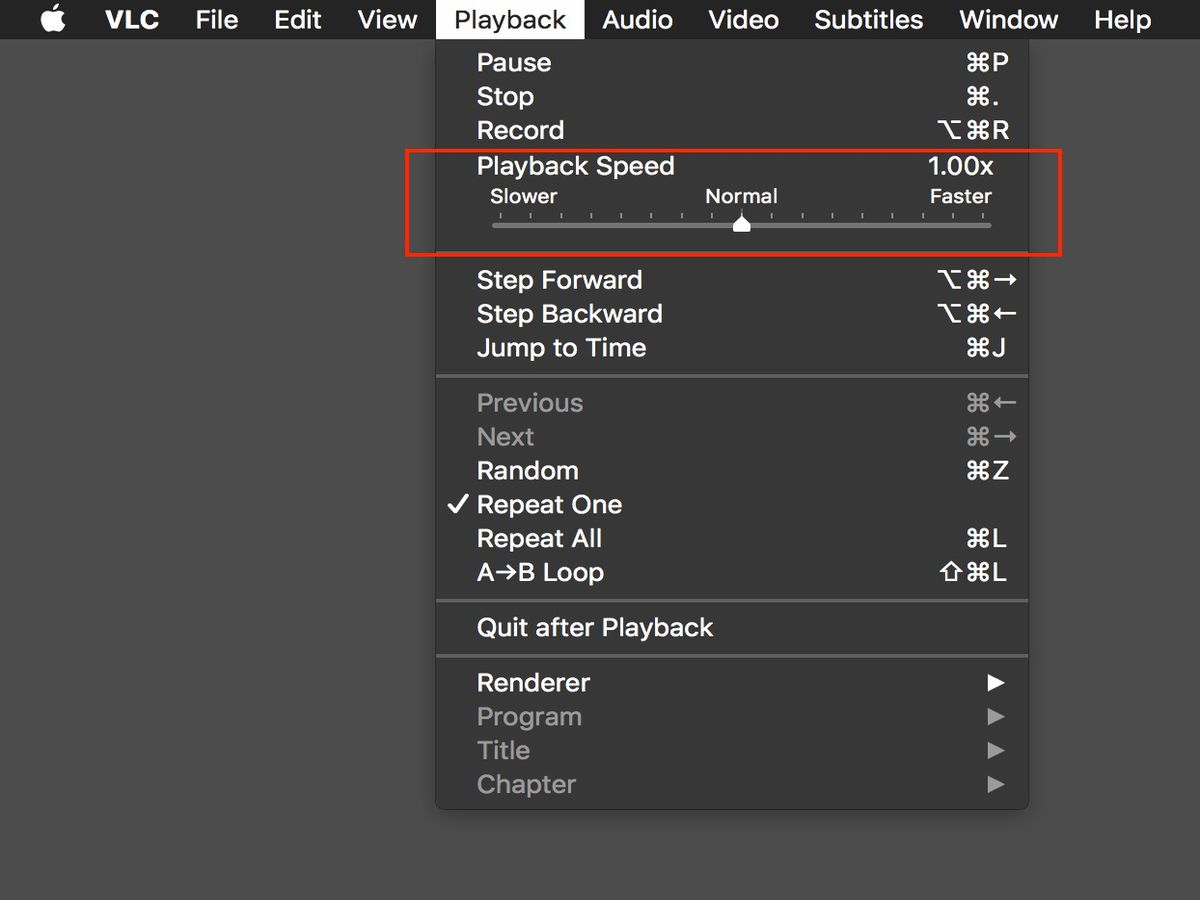Home>Events & Info>Podcast>How To Increase Podcast Downloads


Podcast
How To Increase Podcast Downloads
Modified: January 22, 2024
Discover effective strategies to boost your podcast downloads with our comprehensive guide on how to increase podcast listenership. Optimize your podcast for maximum reach and engagement.
(Many of the links in this article redirect to a specific reviewed product. Your purchase of these products through affiliate links helps to generate commission for AudioLover.com, at no extra cost. Learn more)
Table of Contents
- Introduction
- Understanding the Importance of Podcast Downloads
- Creating High-Quality Content
- Optimize Your Podcast Titles and Descriptions
- Promote Your Podcast on Social Media
- Collaborate with Other Podcasters
- Utilize Email Marketing
- Engage with Your Audience
- Leverage SEO Strategies
- Offer Transcriptions of Your Episodes
- Utilize Podcast Directories and Platforms
- Encourage Reviews and Ratings
- Analyze Your Podcast Metrics
- Conclusion
Introduction
Welcome to the fascinating world of podcasts, where storytelling, education, and entertainment come together in the form of audio content. Podcasting has gained immense popularity in recent years, with millions of people around the world tuning in to their favorite shows on a regular basis. Whether you are a podcast host or considering starting your own podcast, one of the key metrics to track is the number of downloads your episodes receive.
Podcast downloads not only signify the reach and engagement of your content but also play a crucial role in attracting sponsors, advertisers, and building a loyal listener base. In this article, we will explore effective techniques to increase your podcast downloads and maximize the visibility and impact of your show.
Before we dive into the strategies, it’s important to emphasize that producing high-quality content should be the foundation of your podcast. No amount of marketing or optimization can compensate for subpar content. So, invest time and effort into creating engaging episodes that resonate with your target audience.
Now, let’s explore some actionable strategies to boost your podcast downloads and take your show to new heights!
Understanding the Importance of Podcast Downloads
Podcast downloads are a critical metric for measuring the success and impact of your show. They provide insights into the popularity and reach of your content, allowing you to gauge the level of engagement with your target audience. Here’s why podcast downloads matter:
- Indicator of Popularity: The number of downloads your podcast receives is a direct reflection of its popularity. A higher download count implies that more people are interested in your content and find value in what you have to say. This can attract potential sponsors and advertisers who are looking for podcasts with a large and engaged audience.
- Revenue Generation: Podcast downloads play a crucial role in generating revenue for your show. With a significant number of downloads, you can leverage sponsorships, advertisements, and partnerships to monetize your podcast. Advertisers are more likely to invest in shows with high download numbers, as it increases their visibility and potential reach.
- Community Building: Podcast downloads help you build a community of loyal listeners who consistently follow and engage with your show. These are the individuals who are more likely to share your episodes, leave reviews, and recommend your podcast to others, ultimately expanding your listener base.
- Validation of content: High download numbers serve as validation that your content resonates with your target audience. It tells you that you are providing value and meeting the needs of your listeners. This feedback can be incredibly motivating and encourage you to continue producing quality episodes.
In summary, podcast downloads provide important insights into your show’s performance and impact. It is not just a vanity metric but a crucial indicator of your podcast’s popularity, revenue potential, community engagement, and content validation. With a clear understanding of their significance, let’s explore strategies to increase your podcast downloads and take your show to new heights!
Creating High-Quality Content
When it comes to increasing podcast downloads, the first and foremost step is to create high-quality content that captivates and resonates with your audience. Here are some key considerations to keep in mind when producing episodes:
- Know Your Audience: Understand the interests, preferences, and needs of your target audience. Conduct research, engage with your listeners, and gather feedback to create content that caters to their specific interests and challenges.
- Focus on Value: Offer valuable and actionable insights to your audience. Provide information, tips, and advice that can genuinely help them in their personal or professional lives. Remember, the more value you provide, the more likely they are to download and share your episodes.
- Storytelling: Incorporate storytelling techniques to engage and entertain your audience. Craft compelling narratives, share personal experiences, and use vivid language to create an emotional connection with your listeners.
- Consistency: Consistently release new episodes according to a set schedule. This helps build anticipation and keeps your audience engaged. Avoid long gaps between episodes, as it may lead to a decline in downloads and listener retention.
- Episode Length: Consider the ideal length for your episodes based on your target audience and the nature of your content. Find the sweet spot that provides enough depth and information without overwhelming or losing listener interest.
- Guests and Interviews: Invite guests and experts in your niche to share their insights and experiences. This adds variety to your content and attracts new listeners who may be interested in your guests’ expertise.
- Audio Quality: Invest in good-quality recording equipment and ensure that your episodes are well-produced with clear audio. Listeners appreciate professional-sounding episodes and are more likely to recommend and download them.
Remember, creating high-quality content is the foundation of a successful podcast. By consistently delivering valuable and engaging episodes, you will not only attract more downloads but also build a loyal listener base who eagerly awaits your next release.
Optimize Your Podcast Titles and Descriptions
Optimizing your podcast titles and descriptions is crucial for increasing visibility and attracting potential listeners. Here are some strategies to optimize your podcast metadata:
- Keyword Research: Conduct keyword research to identify popular search terms and phrases related to your podcast niche. Incorporate these keywords naturally into your episode titles and descriptions to improve your chances of ranking higher in search results.
- Descriptive Titles: Craft descriptive and engaging episode titles that accurately convey the essence of your content. A well-written title can catch the attention of potential listeners and entice them to download your episode.
- Compelling Descriptions: Write compelling and concise descriptions for each episode. Highlight the main topics, themes, or guests featured in the episode to give listeners a glimpse of what they can expect. Use persuasive language to encourage downloads.
- Include Timestamps: If your episodes cover multiple topics or segments, consider including timestamps in your descriptions. This enables listeners to easily navigate to the sections that interest them, enhancing their user experience.
- Utilize SEO Techniques: Incorporate relevant keywords naturally throughout your episode titles and descriptions. However, avoid keyword stuffing, as it can harm your rankings and make your content appear spammy. Write for humans first and optimize for search engines second.
- Focus on Benefits: Highlight the benefits and value that listeners will gain from your episodes. Whether it’s learning new skills, gaining insights, or finding inspiration, clearly communicate how your content can improve their lives.
- Attractive Formatting: Use bullet points, bold text, and proper formatting in your descriptions to make them visually appealing and scannable. This helps potential listeners quickly grasp the key points and increases the likelihood of downloads.
By optimizing your podcast titles and descriptions, you can improve your visibility in search results and attract more potential listeners. Remember to strike a balance between incorporating keywords and crafting compelling and informative descriptions that capture the essence of your episodes.
Promote Your Podcast on Social Media
Social media platforms provide a powerful avenue to promote your podcast, expand your reach, and increase downloads. Here’s how you can effectively leverage social media for podcast promotion:
- Create Dedicated Accounts: Set up dedicated social media accounts for your podcast. This allows you to maintain a consistent brand image and engage with your audience directly.
- Share Engaging Teasers: Create short audio or video teasers of your episodes to generate excitement and curiosity among your followers. These teasers should provide a sneak peek into the content and compel listeners to download the full episode.
- Post Episode Highlights: Share key highlights or quotes from your episodes on social media. This not only entices your existing followers but also attracts new listeners who resonate with the insights or ideas you’ve shared.
- Engage with Your Audience: Respond to comments, messages, and mentions from your followers. Engage in conversations, answer questions, and show genuine interest in your audience’s feedback. This builds loyalty and encourages them to share your podcast with others.
- Collaborate with Influencers: Collaborate with influencers or industry experts who have a significant social media following. Guest appearances on their platforms or interviews can introduce your podcast to a wider audience and increase your reach.
- Utilize Relevant Hashtags: Research and use relevant hashtags in your social media posts. This helps increase the discoverability of your content and allows users interested in similar topics to find your podcast.
- Create Branded Visuals: Develop visually appealing graphics or images that represent your podcast’s brand. Use these visuals in your social media posts to create a cohesive and recognizable presence across platforms.
- Promote User-generated Content: Encourage your listeners to create and share content related to your podcast. This can include artwork, reviews, or testimonials. Share these user-generated pieces on your social media accounts to foster community engagement and attract new listeners.
- Run Contests or Giveaways: Organize contests or giveaways exclusively for your social media followers. This incentivizes engagement and encourages followers to share your podcast with their own networks, leading to increased visibility and downloads.
Remember, social media is a dynamic and ever-changing landscape. Stay updated with the latest trends and platforms, and adapt your promotional strategies accordingly. By effectively utilizing social media, you can significantly increase your podcast downloads and grow your audience.
Collaborate with Other Podcasters
Collaborating with other podcasters is a fantastic way to expand your podcast’s reach, tap into new audiences, and increase your downloads. Here are some strategies to effectively collaborate with fellow podcasters:
- Guest Appearances: Offer to be a guest on other podcasts within your niche. This allows you to introduce yourself to a new audience who may be interested in your content. Make sure to provide value, share your expertise, and leave a lasting impression to encourage listeners to check out your podcast.
- Invite Guest Hosts: Invite other podcasters to be guest hosts on your show. This not only brings fresh perspectives to your content but also exposes your podcast to the guest host’s audience. Cross-promote the episode on each other’s platforms to maximize visibility and downloads.
- Podcast Swaps: Collaborate with another podcaster to create a joint episode or series. Co-hosting an episode or exchanging podcast spots allows you to tap into each other’s audience and expand your reach. This mutual promotion can lead to increased downloads for both podcasts.
- Cross-Promotion: Regularly cross-promote your podcast with other podcasters in your niche. This can involve mentioning each other’s shows in your episodes, sharing each other’s content on social media, or including reciprocal links on your websites. The goal is to introduce your podcast to new listeners who share similar interests.
- Guest Exchanges: Facilitate guest exchanges with other podcasters. By featuring guests from other podcasts on your show, you bring their audience to your podcast. At the same time, when you are featured as a guest on other podcasts, your expertise and podcast get exposure to a new set of listeners.
- Joint Marketing Efforts: Collaborate with other podcasters on joint marketing initiatives. This can include hosting virtual events, launching a shared social media campaign, or creating a collaborative website or newsletter. By pooling resources and sharing audiences, you can amplify your reach and boost downloads for everyone involved.
Collaborating with other podcasters not only helps you reach a wider audience but also fosters a sense of community within the podcasting industry. By building relationships with fellow podcasters, you can support each other’s growth and create more opportunities for success.
Utilize Email Marketing
Email marketing is a highly effective strategy for promoting your podcast and engaging with your audience directly. Here are some key ways to leverage email marketing to increase your podcast downloads:
- Build an Email List: Create an email list by offering a signup form on your website or podcast platform. Encourage visitors and listeners to subscribe to your newsletter to receive updates, exclusive content, and notifications about new episodes.
- Segment Your Audience: Divide your email list into segments based on interests, demographics, or engagement levels. This allows you to send targeted emails that cater to the specific needs and preferences of different segments of your audience.
- Send Regular Newsletters: Develop a regular newsletter to keep your subscribers engaged. Include highlights from recent episodes, behind-the-scenes insights, exclusive content, and upcoming episode teasers. Make your newsletters visually appealing and easy to read.
- Promote New Episodes: Notify your email subscribers about new episode releases. Include a brief description, compelling episode title, and a direct link to listen or download. Personalize your email by adding a teaser quote or a question that piques curiosity.
- Offer Bonus Content: Reward your email subscribers by offering exclusive bonus content related to your podcast. This can include additional episodes, guides, eBooks, or access to a members-only area. Incentivize new subscribers by promoting this exclusive content.
- Create Call-to-Action Buttons: Include clear and prominent call-to-action buttons in your emails. Use phrases like “Listen Now” or “Download Episode” to drive subscribers directly to your podcast platform. Make it easy for them to take action and access your episodes.
- Encourage Sharing: Include social sharing buttons in your emails to encourage subscribers to share your episodes with their network. Word-of-mouth and recommendations from trusted sources are powerful in driving new listeners to your podcast.
- Collect and Leverage Feedback: Ask for feedback and suggestions from your email subscribers. This not only shows that you value their opinions but also provides valuable insights for improving your podcast and fostering a sense of community.
- Automate Email Sequences: Set up automated email sequences, such as a welcome series for new subscribers or a re-engagement series for inactive subscribers. These sequences provide targeted messaging and help nurture relationships with your audience over time.
Email marketing allows you to maintain a direct line of communication with your audience and keep them engaged with your podcast. By effectively utilizing this strategy, you can drive more downloads, build a loyal listener base, and strengthen your podcast brand.
Engage with Your Audience
Engaging with your audience is crucial for building a loyal community of listeners and increasing podcast downloads. Here are some effective ways to engage with your audience:
- Respond to Comments and Messages: Take the time to respond to comments and messages from your listeners. Show genuine interest in their thoughts, questions, and feedback. Engaging in conversations helps foster a sense of connection and encourages ongoing interaction.
- Ask for Listener Input: Encourage your audience to provide input on topics they would like to hear or guests they would like to see on your podcast. Conduct polls or surveys to gather their preferences and consider incorporating their suggestions into future episodes.
- Create a Community: Establish a community for your podcast, whether through a Facebook group, a dedicated forum, or a platform like Discord. This allows listeners to connect with each other, share their experiences, and discuss episodes. Actively participate in the community to foster engagement and build a strong sense of belonging.
- Offer Exclusive Content: Provide your audience with exclusive content or behind-the-scenes insights that are not available through regular podcast episodes. This can include bonus episodes, Q&A sessions, or live events. Exclusive content rewards your loyal listeners and gives them a sense of being part of something special.
- Encourage Listener Reviews and Ratings: Ask your audience to leave reviews and ratings on platforms like Apple Podcasts, Spotify, or Podchaser. Positive reviews and high ratings not only boost your podcast’s credibility but also attract new listeners who rely on social proof when choosing which podcasts to listen to.
- Feature Listener Stories and Feedback: Share listener stories, success stories, or feedback on your podcast. This shows your appreciation for their support and encourages others to engage with your podcast. Consider inviting listeners to be guests on your show to share their experiences related to your podcast’s theme.
- Create Interactive Episodes: Occasionally include interactive elements in your episodes, such as listener questions, polls, or challenges. This encourages listeners to actively participate and engage with your content, making them feel more connected to your podcast.
- Utilize Social Media Engagement: Actively engage with your audience on social media platforms. Respond to their comments, like and share their content, and participate in relevant discussions. Show appreciation for their support and make them feel valued.
- Host Live Events or Q&A Sessions: Organize live events or Q&A sessions where your audience can directly interact with you. This can be done through platforms like Instagram Live, Facebook Live, or a virtual event. Live interactions build a rapport with your listeners and provide an opportunity for real-time engagement.
Engaging with your audience not only strengthens the relationship between you and your listeners but also creates an environment where they feel valued and connected. By actively involving your audience, you can foster a dedicated community and generate more downloads for your podcast.
Leverage SEO Strategies
Implementing SEO (Search Engine Optimization) strategies is essential for improving the visibility of your podcast in search engine results and driving organic traffic to your episodes. Here are some key SEO techniques to optimize your podcast:
- Keyword Research: Perform keyword research to identify relevant keywords and phrases related to your podcast’s niche. Use these keywords strategically in your podcast titles, descriptions, and even in your show notes to help search engines understand the content of your episodes.
- Optimize Episode Titles: Craft compelling and keyword-rich episode titles that accurately describe the content. Use attention-grabbing headlines that clearly convey the value and topic of the episode at a glance.
- Optimize Episode Descriptions: Write detailed and informative descriptions for your episodes, incorporating relevant keywords naturally. In addition to improving search engine visibility, well-written descriptions entice potential listeners and encourage them to download your episodes.
- Transcriptions and Show Notes: Transcribe your episodes and include detailed show notes on your website. Transcriptions make your content accessible to a wider audience, including those with hearing impairments, while show notes provide a summary of the episode’s main points, topics, and resources mentioned.
- Optimize Your Podcast Website: Optimize your podcast website for search engines. Ensure your website structure is organized, mobile-friendly, and loads quickly. Keep your website regularly updated with fresh and relevant content, such as blog posts or articles related to your podcast’s niche, to enhance search engine visibility.
- Backlinks and Guest Appearances: Seek opportunities to build high-quality backlinks to your podcast through guest appearances on other podcasts, collaborations, or reaching out to relevant websites and influencers. Backlinks from reputable sources can improve your podcast’s authority and visibility in search engine rankings.
- Promote and Share on Social Media: Share your podcast episodes on social media platforms, using relevant keywords and hashtags in your captions and descriptions. Social media mentions and shares can contribute to increased visibility and reach, indirectly impacting your search engine rankings.
- Submit Your Podcast to Directories: Submit your podcast to relevant podcast directories, such as Apple Podcasts, Spotify, Google Podcasts, and others. Optimizing your podcast’s presence on these platforms increases its discoverability and accessibility to a wider audience.
- Monitor Analytics: Regularly analyze your podcast’s performance using analytics tools. Monitor your website’s traffic, keyword rankings, episode downloads, and user engagement to gain insights and make data-driven decisions for improving your SEO strategies.
- Continuous Optimization: SEO is an ongoing process. Stay updated with the latest SEO trends, algorithm changes, and best practices. Regularly audit and optimize your podcast’s SEO elements to maintain and improve its visibility in search engine results.
By leveraging SEO strategies, you can enhance the discoverability and visibility of your podcast in search engine rankings. This can result in increased organic traffic, more downloads, and a growing listener base for your podcast.
Offer Transcriptions of Your Episodes
Providing transcriptions of your podcast episodes is a valuable strategy that offers numerous benefits for both your audience and your podcast’s visibility. Here’s why offering transcriptions is important:
- Accessibility for All: Transcriptions make your podcast accessible to a broader audience, including those with hearing impairments or language barriers. By providing a written version of your content, you ensure that everyone can engage with your episodes and benefit from the valuable information you share.
- Improved SEO: Transcriptions contribute to better search engine optimization. Search engines can index the text content of your transcriptions, allowing your podcast to be found more easily in organic search results. Including relevant keywords in your transcriptions can also help improve your search rankings.
- Enhanced User Experience: Offering transcriptions enhances the overall user experience for your audience. Some listeners prefer reading or referring to the text while listening, helping them grasp the information more effectively. Transcriptions also enable quick referencing and easy sharing, increasing engagement and reaching a wider audience.
- Increased Content Discoverability: Transcriptions open up opportunities for repurposing your podcast content. You can republish or repurpose the transcriptions as blog posts, articles, or social media content. This allows you to reach new audiences and expand the visibility and reach of your podcast beyond audio platforms.
- Assisting Language Learners: Transcriptions provide valuable support for language learners who want to improve their listening skills. They can follow along with the text while listening to your episodes, helping them understand and learn new vocabulary and concepts more effectively.
- Reference Resource: Transcriptions serve as a valuable reference resource for your audience. They can refer back to specific sections or quotes from your episodes easily, improving retention and comprehension of the information you share. This also encourages repeat listens and increases engagement.
- Building Trust and Credibility: Providing transcriptions demonstrates your commitment to inclusivity and accessibility. It shows that you value all members of your audience, regardless of their hearing abilities or preferred mode of consumption. This builds trust and credibility, fostering a stronger connection with your listeners.
Offering transcriptions of your episodes is a powerful way to make your podcast more inclusive, searchable, and valuable for your audience. It enhances accessibility, boosts SEO, and allows for repurposing and reaching new audiences. By catering to diverse learning preferences and providing an additional resource for your listeners, you can enhance engagement and grow your podcast’s influence.
Utilize Podcast Directories and Platforms
Utilizing podcast directories and platforms is key to increasing the discoverability and reach of your podcast. These platforms offer a dedicated space for podcasters to showcase their content and connect with potential listeners. Here’s how you can leverage podcast directories and platforms:
- Submit to Major Podcast Directories: Submit your podcast to popular podcast directories such as Apple Podcasts, Spotify, Google Podcasts, and Stitcher. These directories have massive user bases and can significantly increase your podcast’s visibility and potential for downloads.
- Optimize Your Listings: Optimize your podcast listings on directories by providing comprehensive and engaging descriptions. Use relevant keywords, compelling episode titles, and eye-catching artwork to attract potential listeners and stand out from the competition.
- Explore Niche Podcast Directories: Research and submit your podcast to niche-specific podcast directories related to your podcast’s genre or industry. These directories allow you to target a specific audience interested in your niche and increase the chances of reaching highly engaged listeners.
- Create a Podcast Website: Establish a dedicated website for your podcast. This serves as a central hub where potential listeners can learn more about your show, access episodes, and find additional information. Your website should also include links to all major podcast directories where your podcast is listed.
- Participate in Podcast Platforms and Networks: Join podcasting networks or platforms that provide additional exposure and promotional opportunities. These platforms often have established audiences and can help you connect with fellow podcasters and cross-promote your episodes.
- Embed Episodes on Your Website: Embed episodes on your website or blog to drive traffic and increase engagement. This allows visitors to listen to your podcast directly from your site, improving the user experience and encouraging them to explore more of your content.
- Utilize SEO on Your Website: Optimize your podcast website for search engines by incorporating relevant keywords, meta tags, and headings. This helps your site rank higher in search results, attracting more organic traffic and potential listeners.
- Cross-Promote on Other Podcasts: Collaborate with other podcasters by appearing as a guest on their show or engaging in cross-promotion. This exposes your podcast to their audience and drives new listeners to discover and download your episodes.
- Engage with Podcast Communities: Engage with podcast communities and forums such as Reddit’s podcasting communities or online podcasting groups. Participate in discussions, share your expertise, and promote your podcast while connecting with like-minded podcasters and potential listeners.
By leveraging podcast directories and platforms, you can increase the visibility of your podcast to a wider audience. Ensure your listings are optimized, create a dedicated website, cross-promote with other podcasters, and engage with podcast communities to maximize the exposure and growth of your podcast.
Encourage Reviews and Ratings
Reviews and ratings play a vital role in growing your podcast’s credibility, attracting new listeners, and increasing downloads. Positive reviews and high ratings signal to potential listeners that your podcast is worth their time and attention. Here’s how you can encourage reviews and ratings:
- Ask for Reviews: Encourage your listeners to leave reviews and ratings by directly asking for them during your podcast episodes. Let them know that reviews help you understand their preferences better and improve the quality of your content. This gentle reminder can significantly boost the number of reviews you receive.
- Make It Easy: Provide clear instructions on how to leave reviews and ratings on different podcast platforms, such as Apple Podcasts, Spotify, or Podchaser. Include step-by-step guides on your website, in your show notes, or in your episode descriptions so that listeners can easily navigate the process.
- Show Appreciation: Express your gratitude to those who leave reviews and ratings. Share their reviews on your social media platforms, mention them in your episodes, or even send personalized thank-you emails to show your appreciation. This not only encourages others to leave reviews but also strengthens the bond with your existing audience.
- Incentivize Reviews: Consider running occasional giveaways or contests where listeners are entered into a drawing when they leave a review. Offer a small incentive, such as exclusive bonus content or merchandise, as a thank-you for taking the time to leave a review. This can motivate listeners to leave reviews and increase engagement.
- Highlight Reviews: Highlight positive reviews in your podcast and on your website. Choose compelling or insightful quotes from reviews and share them during episodes to showcase the positive feedback you’ve received. This social proof attracts new listeners and strengthens your podcast’s reputation.
- Respond to Reviews: Take the time to respond to reviews, both positive and constructive. Engage with your listeners by acknowledging their feedback and thanking them for their support. Whether it’s addressing a specific comment or expressing gratitude for their kind words, responding to reviews shows that you value your audience’s input and care about their opinions.
- Collaborate with Influencers: Reach out to influencers, industry experts, or respected voices in your niche and invite them to be guests on your podcast. Their endorsement and participation can attract more listeners and encourage them to leave reviews and ratings on your episodes.
- Promote Reviews on Social Media: Post about reviews on your social media platforms, featuring snippets of positive feedback or screenshots of glowing reviews. Use visually appealing graphics and include a call-to-action for others to listen to your podcast and leave their own reviews.
- Provide a Seamless Review Experience: Streamline the process of leaving reviews by including direct links to the review section of each platform in your episode descriptions, show notes, or website. Making it as easy as possible for listeners to leave reviews increases the likelihood of them actually doing so.
Reviews and ratings are powerful tools for attracting new listeners and building trust. By actively encouraging your audience to leave reviews and ratings, acknowledging their feedback, and highlighting positive reviews, you can boost engagement, attract more listeners, and ultimately increase podcast downloads.
Analyze Your Podcast Metrics
Analyzing your podcast metrics is crucial for understanding the performance of your show, identifying areas for improvement, and optimizing your podcast strategy. Here are key podcast metrics to analyze:
- Downloads: Track the number of downloads your episodes receive. This metric indicates the overall reach and popularity of your podcast. Monitor trends over time to identify episodes that resonate well with your audience and those that may require adjustments.
- Listener Demographics: Use demographic data, such as age, gender, and location, to gain insights into your podcast’s audience. Understanding the demographics of your listeners helps refine your content, tailor your marketing efforts, and potentially attract sponsors or advertisers targeting specific demographics.
- Listener Retention: Evaluate how well your podcast retains listeners throughout each episode. Analyze the average listening duration and drop-off points to identify areas where listener engagement wanes. Use this data to improve content flow, structure, and episode length for maximum listener retention.
- Listener Engagement: Monitor listener engagement metrics, such as likes, shares, comments, and social media interactions. Engagement metrics indicate the level of connection your podcast has with the audience. Assess which episodes or topics generate higher engagement and replicate those elements in future episodes.
- Referral Sources: Track where your podcast traffic is coming from, whether through direct searches, social media, podcast directories, your website, or other referral sources. This information helps you understand which promotion strategies are driving traffic and allows you to allocate resources effectively.
- Conversion Rates: Measure the conversion rate of listeners into subscribers, newsletter subscribers, or other desired actions. Analyze the effectiveness of your calls-to-action and promotional efforts. Experiment with different strategies to improve conversion rates and grow your loyal audience.
- Reviews and Ratings: Monitor the number and sentiment of reviews and ratings your podcast receives. Positive reviews validate your podcast’s quality and encourage new listeners. Address any concerns or feedback from negative reviews to continuously improve your content and strengthen audience relationships.
- Sponsorship Impact: If you have sponsors, assess the impact of their promotions. Track the number of downloads or conversions generated during sponsored episodes to measure the effectiveness of your sponsorship collaborations. Use this data to attract and retain sponsors in the future.
- Geographical Reach: Explore the geographical distribution of your listeners. Identify regions where your podcast performs well and target your marketing efforts accordingly. Consider adapting content or leveraging local events or guest appearances to enhance your reach in specific locations.
- Seasonal Trends: Analyze seasonal trends in your podcast performance. Identify patterns related to certain times of the year, themes, or holiday seasons. This awareness enables you to plan and create content tailored to these trends, maximizing engagement and downloads.
Regularly analyzing your podcast metrics provides insights into your audience’s behavior and preferences, allowing you to make data-driven decisions to improve your podcast strategy. Use these metrics to refine your content, optimize promotion strategies, and enhance the overall listener experience.
Conclusion
In a rapidly growing podcast landscape, increasing your podcast downloads requires a strategic approach and a deep understanding of your audience’s preferences. By implementing the techniques discussed in this article, you can enhance your podcast’s visibility, attract new listeners, and foster a loyal community. Let’s summarize the key strategies covered:
First and foremost, focus on creating high-quality content that provides value to your audience. Engaging storytelling, targeted topics, and consistent delivery are essential for generating interest and encouraging downloads.
Optimizing your podcast titles and descriptions is crucial for improving search engine visibility. Conduct keyword research and craft descriptive, attention-grabbing titles and compelling descriptions that entice listeners to click and download.
Utilize social media platforms to promote your podcast and engage with your audience. Share teasers, interact with your followers, collaborate with other podcasters, and leverage social media marketing techniques to increase visibility and attract new listeners.
Harness the power of email marketing to directly engage with your audience. Build an email list, send regular newsletters, and offer exclusive content to keep your subscribers informed and involved in your podcast journey.
Collaborate with other podcasters to tap into their audiences, cross-promote, and expand your reach. Guest appearances, podcast swaps, and joint marketing efforts can expose your podcast to new listeners and increase downloads.
Leverage SEO strategies to improve your podcast’s visibility in search engine rankings. Optimize titles, descriptions, website content, and directories, and actively monitor metrics to refine your SEO approach over time.
Offer transcriptions of your episodes to enhance accessibility, improve search engine optimization, and cater to different learning preferences. Transcriptions also serve as valuable reference resources for your audience.
Encourage reviews and ratings from your audience to build credibility and attract new listeners. Seek feedback, respond to comments, and highlight positive reviews to enhance engagement and foster trust.
Analyze your podcast metrics regularly to gain deep insights into your podcast’s performance and audience behavior. Use this data to refine your content, improve user experience, and make informed decisions to drive growth.
By implementing these strategies and consistently monitoring and adapting to listener preferences, you can increase your podcast’s downloads, build a dedicated listener base, and establish yourself as a prominent voice in your niche.
Remember, success in podcasting requires dedication, persistence, and a continuous commitment to deliver valuable and engaging content to your audience. Stay authentic, keep evolving, and strive to create an exceptional podcasting experience for your listeners.











